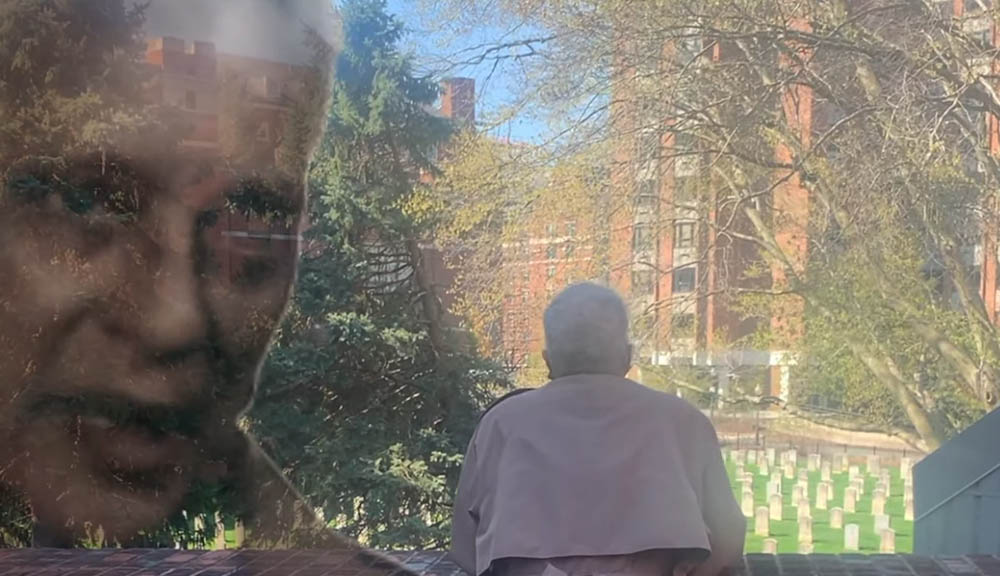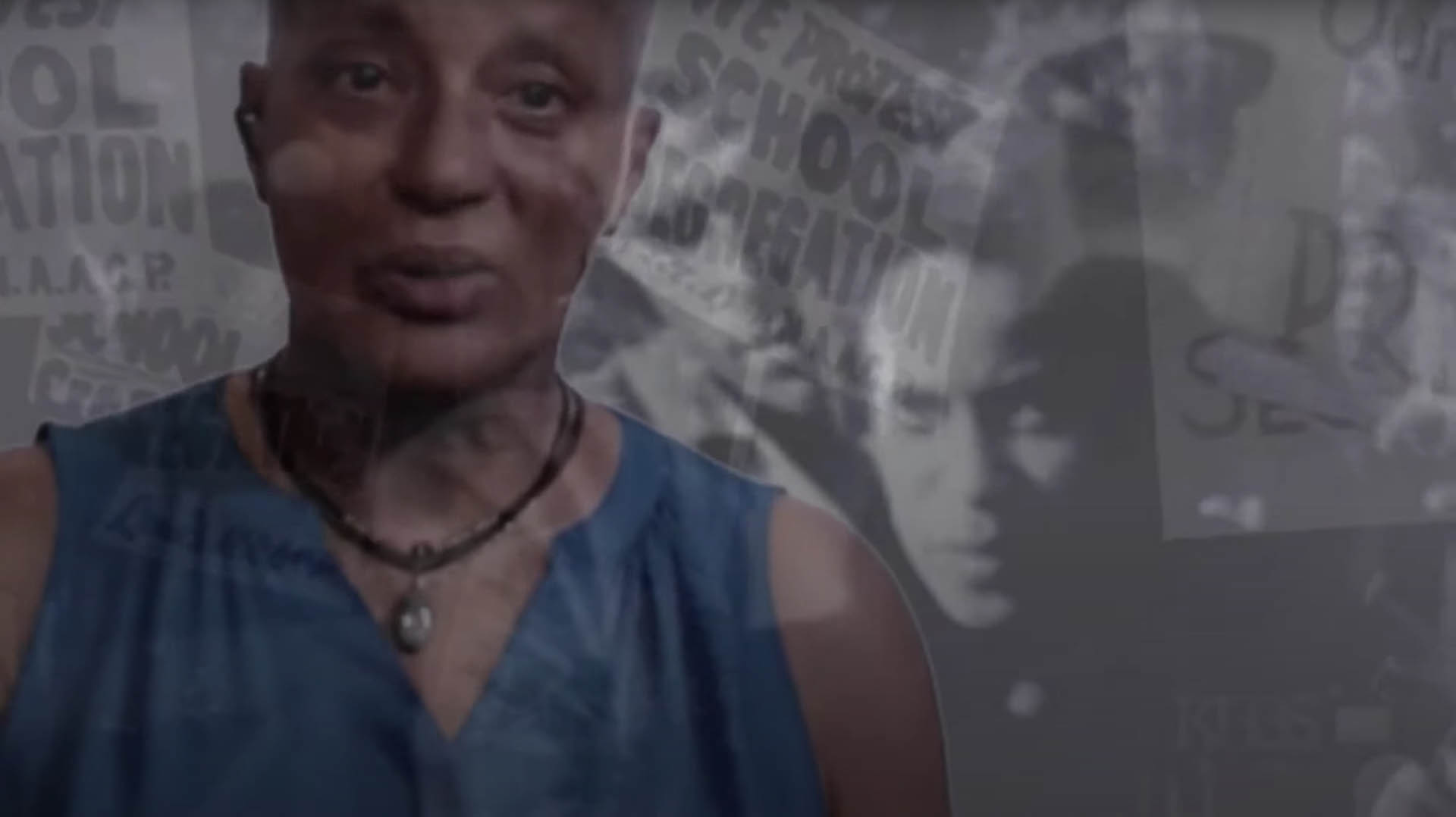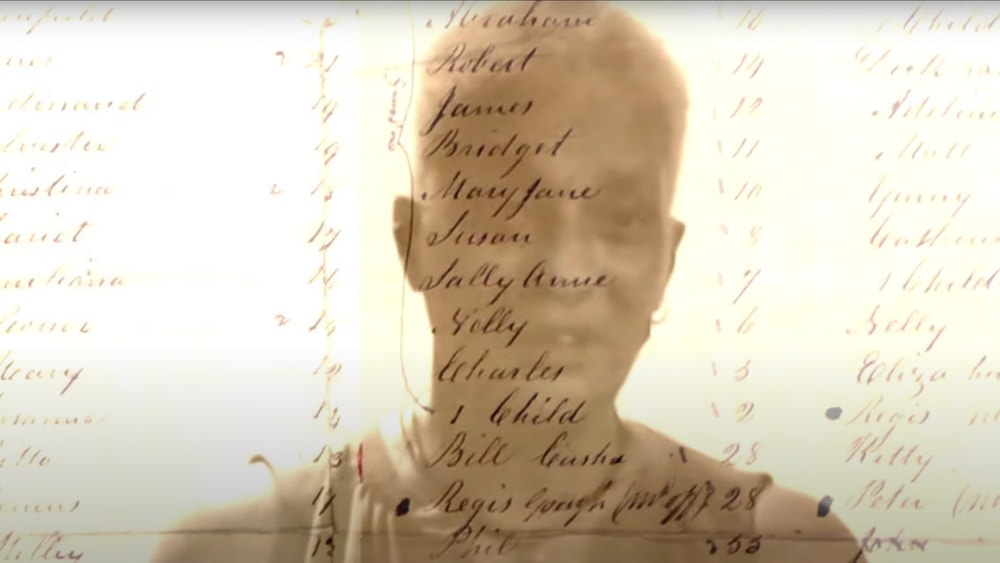Many of us have been asking, “What will our theaters look like when our community returns to a post-pandemic ‘normal’?”
Mélisande Short-Colomb and her collaborators—professionals and students or alumni of The Laboratory for Global Performance and Politics at Georgetown University—have devised a work that may just be a lodestar of what is possible, powerful, and a permanent testament to what the theater can and should be in this time.

Untrained in professional theater and native to Louisiana, “Méli,” as she is known to her cohorts, started her search with decidedly different questions than what theater people have been asking through this past year. How do you use memory to create a more holistic way to memorialize ancestors in this capital region than statues of men on horses? How do you bring to light those whose stories have not been told but those who nonetheless helped build America?
Hers has been a journey. In 2015, the history of the early Jesuits of Georgetown University was outed when the press dropped the bombshell that in 1838 the good Jesuits sold off upward of three hundred slaves to rid themselves of debt and save the university on the hill. Originally referred to as GU272, the number was later revised to 314. Short-Colomb was contacted and informed that she was one of the descendants of this group, which included a history of over three hundred years of slavery.
She was already a survivor of Hurricane Katrina, which had wiped out so much of her immediate tangible family history. Then she was contacted by Derek Goldman and Cynthia Schneider, cofounders of the Laboratory for Global Performance and Politics. Their meeting served as a catalyst to test their commitment to authentic excavation of the intersection of societal issues and creative expression.

Méli found herself as a 63-year-old woman enrolled in Georgetown University and began her work almost five years ago on what this week was released as a world premiere of Here I Am.
The piece is hard to pin down. It is a solo work of story-telling featuring Méli, but she is revered and supported by a cast of collaborators. It is certainly not a book, but with the assistance of Playwright Nikkole Slater’s dramaturgy, the “telling” is divided into clear chapters. It is not a play, but Goldman directed the dramatic shape of the piece, and it presents as live performance. It is not a film exactly but shared in this new world of digital media, and thanks to Michael Donnay as production manager and Jared Mezzocchi’s exquisite layering of multi-media design—including a Ken Burns–like integration of old photos and scrolled writing of filmed documents—the work has us experience anew the shock of unearthing testaments of human trafficking. Moreover, the piece is enhanced emotionally by the compositions and vocal performance of Somi Kakoma, and the presence of her voice offstage transforms the genre to music-theater.
All this to weave the story of eleven generations and over three hundred years. All to bring us to the opening loop of Méli amidst the procession of other Georgetown students at graduation. Here I Am becomes both a celebratory anthem, part of the “Pomp and Circumstance” tune, and an exhortation to a necessary reckoning.

Some of the greatest power of the piece comes from its economy of means. Méli as Narrator sits, caught on camera mostly in medium shots. She puts on a wide-brimmed hat and trench coat then in another transition she doffs the hat. Likewise, she shares her story with emotional restraint. One of my favorite scenes is when she “confronts” Margaret, a white parishioner in a Maryland cemetery, where the woman is extolling what the Jesuits have meant to her. Méli, keenly aware of the broken headstones and uncared-for depressions in the earth that represent where the enslaved have been buried without markers, outside the fences and around the edges, gently puts it to Margaret that she feels differently about the good Jesuits, since they sold her ancestors as slaves. She confronts Margaret’s cluelessness without hatred and delivers softly, even with a degree of pity, as she mimics Margaret’s “Oh, are you still angry?”
The changing scale of the piece within this world of small screen also impressed me. One moment the focus is on details in the names of the human beings who were sold written in ink in a now-faded document. In the next, we see Méli off to the side of the frame, a silhouette against a sky immense and full of meteor showers, and she is reflecting on the immensity of time. The storyteller reveals to us in this moment a generosity of spirit that is touched with grace.

Surely, what we are meant to understand is that this is not only a ritualistic experience that we have been invited into—to honor Méli’s ancestors Mary Ellen Queen and Abraham Mahoney—but a powerful example of theater of witness. Not only does this descendent humbly and lovingly—and yes with righteous anger—bear witness in Here I Am to those who came before her; she brings us to “Here We Are,” also bearing witness. We must look at the markers but also at the divots, the depressions where those who were neglected, outside the fence, lay forgotten. We must look at it all and understand fully, as Méli’s father taught her, “the earth itself is everybody’s grave.”
Running Time: 70 minutes
Mélisande Short-Colomb’s Here I Am premiered this week in conjunction with Emancipation Day,* presented by the Laboratory for Global Performance and Politics in partnership with the Georgetown University Theater & Performance Studies Program. It is performed live, and there are two performances remaining:
Friday, April 16 at 7:30 PM EST
Saturday, April 17 at 3:00 PM EST
Register for the free online event at Eventbrite: bit.ly/HereIAm21
*April 16 marks the end of slavery in DC, the day in 1862 that Lincoln signed the District of Columbia Compensated Emancipation Act.
Written and performed by Mélisande Short-Colomb
Team of Co-creating Artists:
Jeremy Bennett, Multimedia; Michael Donnay, Stage Management and Research Dramaturgy; Derek Goldman, Direction and Script Development/Dramaturgy; Jared Mezzocchi, Multimedia Design and Direction; Andre Pluess, Sound Design; Nikkole Salter, Script Development/Dramaturgy and Direction; Alberto Segarra, Lighting Design; Somi Kakoma, Composer and Vocal Performance; Alex Troesch, Original Photography
The Names Chorus: Chace Chester, Grace Crozier, Marianna De Souza, Will Hammond, Kendell Long, Julia Lo Cascio, Leigh Meyer, Amina Sadural, Phil Scholer, Renny Simone
SEE ALSO: Descendant of enslaved people sold by Georgetown to perform her ‘Here I Am’




